16 Feb 2015 | Draw the Line, mobile
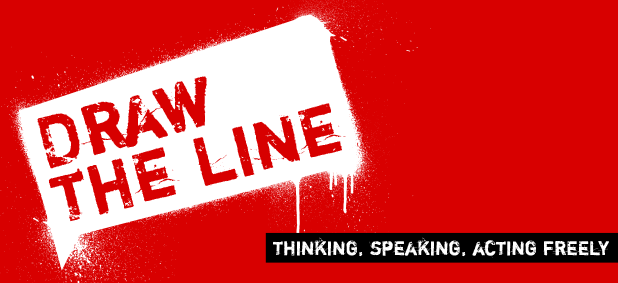
Growth can only happen when old obsolete ideas are replaced with newer, relevant ones. If we don’t challenge the established system of thought, we can’t move forward. If ideas that don’t work anymore aren’t rejected, new ones won’t find space. Without new and better ideas there is no movement in any field. Freedom of speech and expression is fundamental to that forward movement and as Salman Rushdie said, “What is freedom of expression? Without the freedom to offend, it ceases to exist”
We opened up the debate with Charlie Hebdo on our minds. The Hebdo massacre changed the world. Now there is an actual discourse on free expression across the globe. The world is coming together and expressing themselves collectively. Our twitter feed is proof of that. While a lot of people believe that the right to offend comes with the right to free expression, there are people who say that anything that leads to violence is wrong, and there is a fine line there which needs to be observed.
This is where we draw the line: somewhere in the ever-changing grey area between absolutism and stagnancy.
Below, are some young people from across India, who used photographs to join the #IndexDrawtheLine discussion. If you’d like to join the debate, tweet your photos or answers to #IndexDrawtheLine.
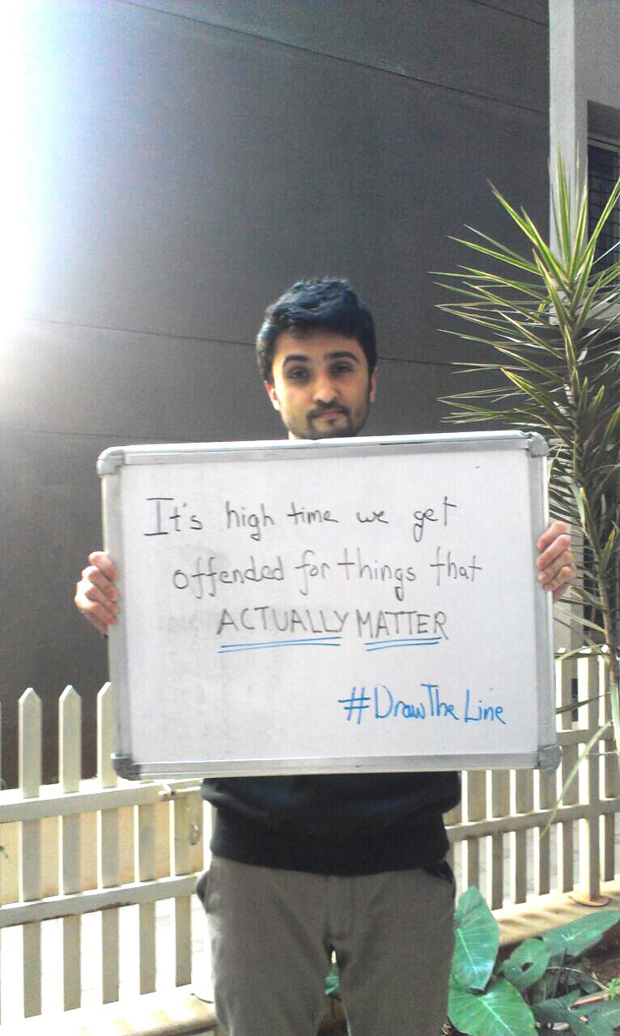
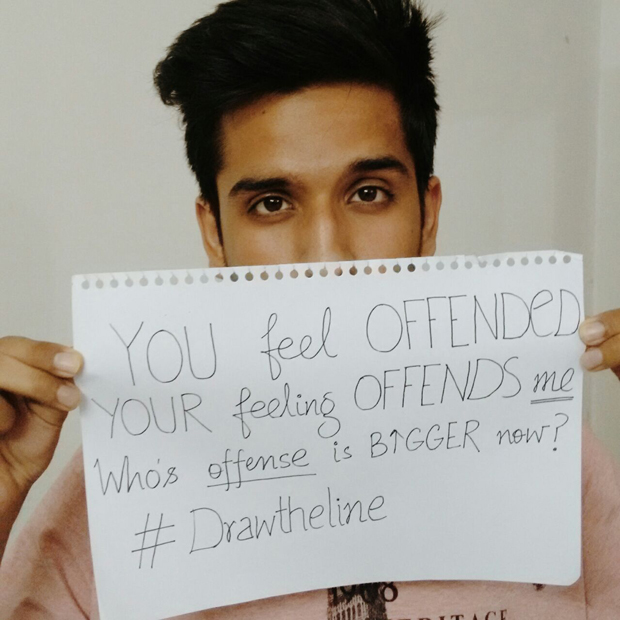
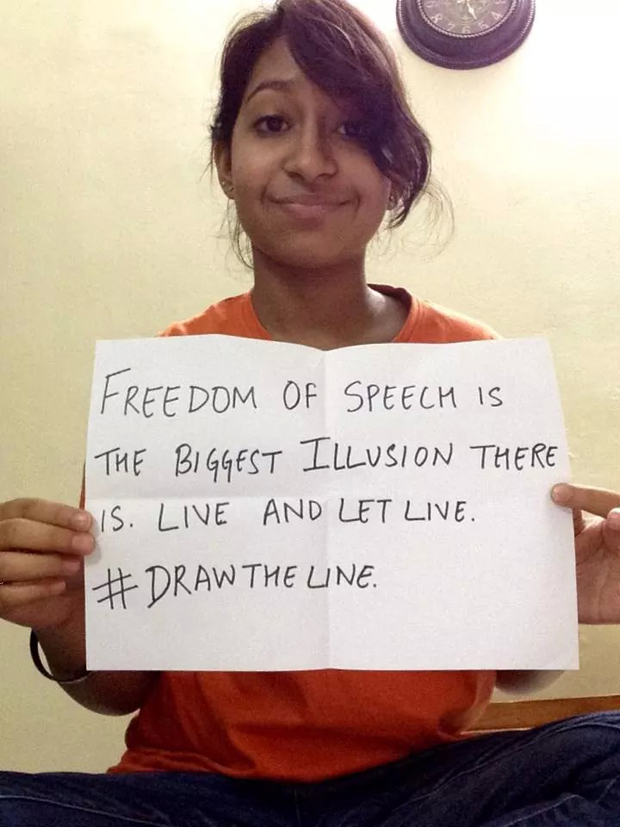
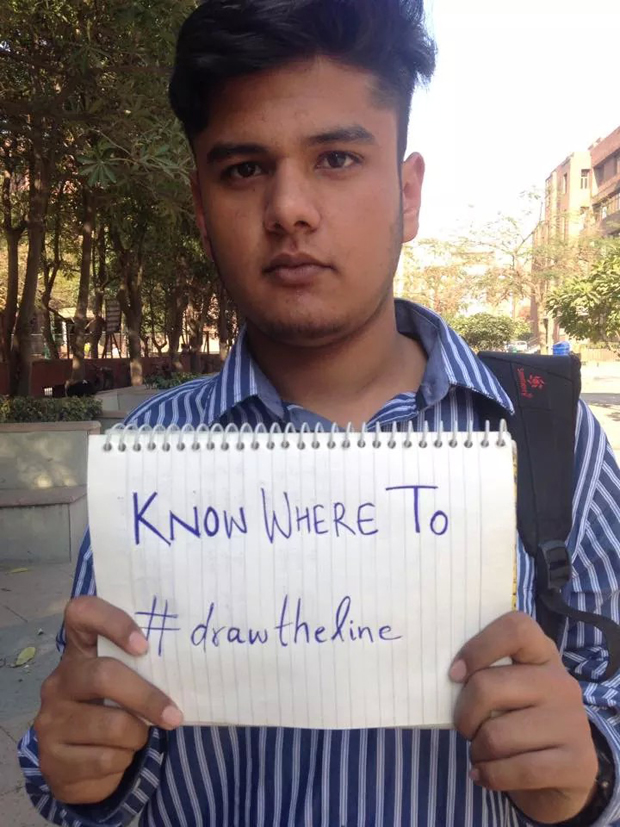
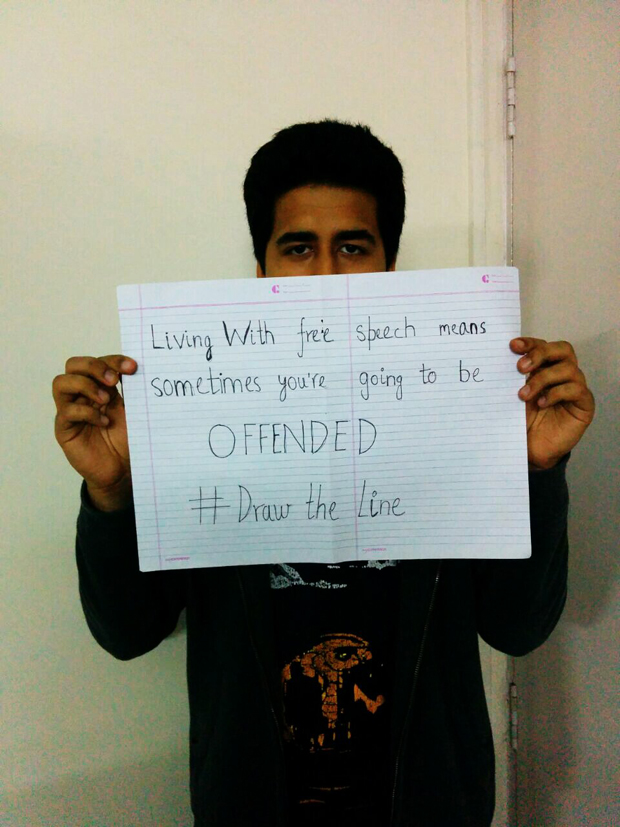
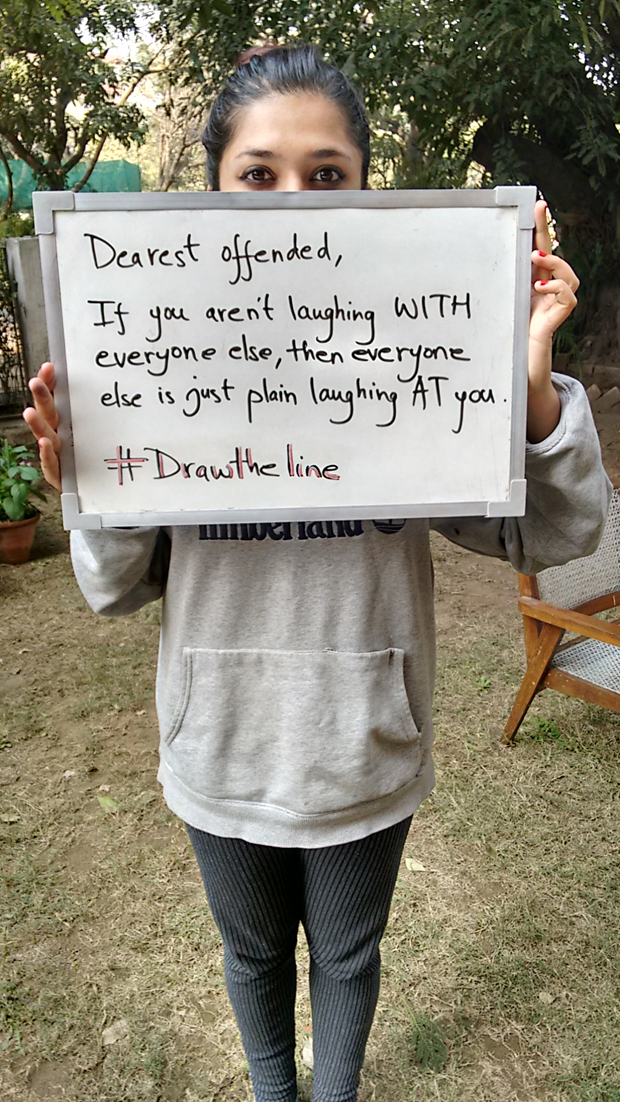
This article was posted on 16 February 2015 at indexoncensorship.org
28 Jan 2015 | Draw the Line, mobile, Youth Board

Censorship, and the degree to which we self-censor, is becoming an increasingly difficult, yet pressing and vitally important, topic of debate amongst an ever-growing international community.
Now, in the internet age, it has never been easier to connect and communicate with so many different people from all across the world. With these wide reaching forms of communication, and various people calling for censorship at different levels, the extent to which offence is considered an acceptable and fundamental part of free speech, has been called into question.
In the wake of the Charlie Hebdo killings, some world leaders have spoken publicly against self-censorship. Australian Prime Minister Tony Abbot urged media in the country to not resort to self-censorship. Some believe that certain groups, communities or organisations should be exempt from satire, criticism or insult. Others might argue that without the right to offend, a proper line of communication can never truly be attained, that no group should be exempt, and that people have the right to offend and be offended, but not to resort to violence and extremism.
This poses the question: is causing offence, and the ability to be offended, a fundamental part of freedom of expression? And, if we remove the right to offend, does this then close down the space for free and open debate?
Tweet your thoughts to #IndexDrawtheLine to get involved in the debate.
This article was published on 28 January 2015 at indexoncensorship.org
12 Nov 2014 | Draw the Line, Young Writers / Artists Programme
The right to vote has long been a symbol that you are seen as a valuable and worthy citizen by your government. The removal of this right is a restriction on your free expression and your ability to contribute to change in your country. But is restricting our right to vote a violation of free speech?
In the recent United States midterm elections there was controversy over the Republican’s use of voting restrictions to prevent groups — who they assumed would vote Democrat — from access to the polling station. The voter ID “fraud” laws have been accused by liberals as a shady measure to attempt to reduce voting by racial and ethnic minorities. It would also affect young people who lacked the supposedly necessary identification.
Voting age is another example of an ongoing debate surrounding this issue. Sixteen-year-olds were allowed to vote in the Scottish referendum earlier this year. Since then, people have questioned whether the voting age should be reduced to 16 for the upcoming UK general election, and whether sixteen year olds are capable of making a well informed decision. And if voting is an act of free speech, does this mean prisoners should have the opportunity to vote? If voting is truly a human right should we all have the right to vote?
This article was posted on 12 November at indexoncensorship.org
5 Nov 2014 | Draw the Line, Young Writers / Artists Programme
In response to this month’s Draw the Line question — “Do laws restrict or protect free speech?” — members of our youth advisory board discuss the different ways laws impact free expression in their home countries.
Margot Tudor talking about UK
Alice Olsson on Sweden
Sophie Armour on the UK
This article was posted on November 01, 2014 at indexoncensorship.org








![By Rama (Own work) [CC-BY-SA-2.0-fr (http://creativecommons.org/licenses/by-sa/2.0/fr/deed.en)], via Wikimedia Commons](https://www.indexoncensorship.org/wp-content/uploads/2014/11/2048px-Election_MG_3455.jpg)